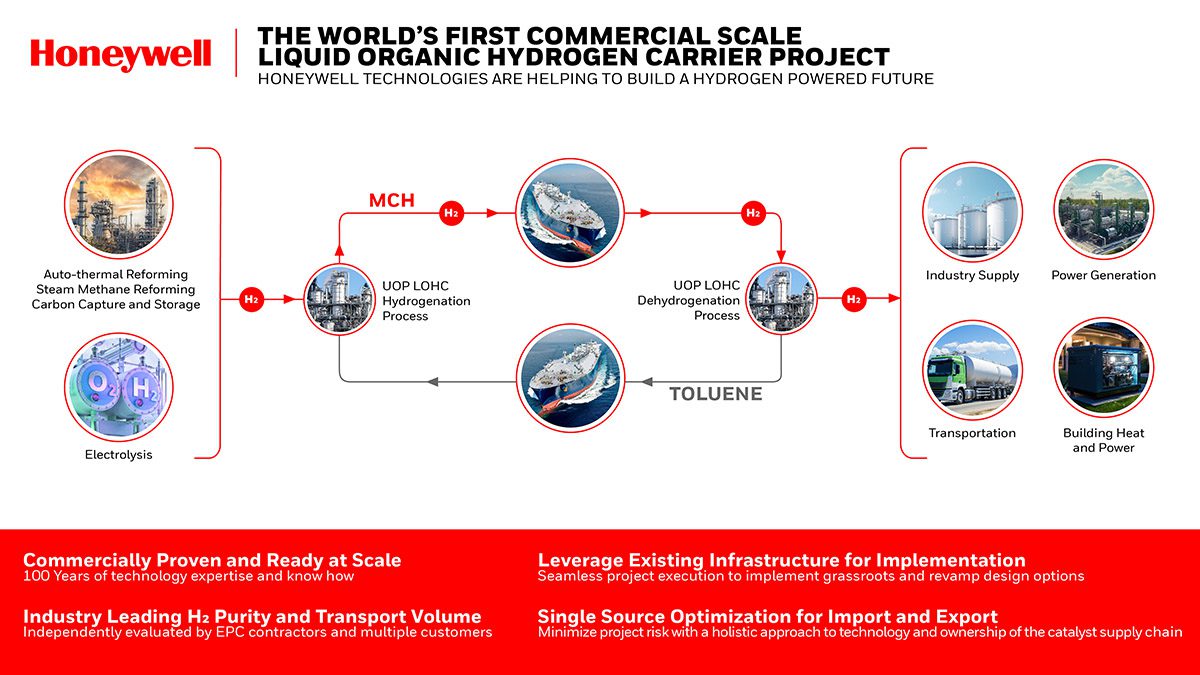In a major milestone for the energy industry, ENEOS, a leading energy company in Japan, has announced a groundbreaking partnership with Honeywell to develop the world’s first commercial scale Liquid Organic Hydrogen Carrier (LOHC) project. This partnership aims to leverage Honeywell’s innovative technology to enable the long-distance transportation of clean hydrogen and meet the growing demand across various industries.
The LOHC solution, developed by Honeywell, addresses the challenges of long-distance hydrogen transportation by chemically combining hydrogen gas into a convenient liquid carrier, methylcyclohexane (MCH). This liquid can be transported using existing infrastructure and then easily recovered at the destination using the Honeywell MCH Dehydrogenation process. This innovative solution not only supports the transition to a hydrogen-powered future but also aligns with Honeywell’s focus on automation, the future of aviation, and energy transition megatrends.
Ken West, president and CEO of Honeywell Energy and Sustainability Solutions, emphasized the importance of cost-effective long-distance transport in enabling hydrogen to play a critical role in the energy mix and supporting the transition to lower-carbon economies. He expressed Honeywell’s commitment to providing solutions that address the challenges of hydrogen transportation and support ENEOS in transitioning to a hydrogen-powered future.
This project is part of a broader collaboration between Honeywell and ENEOS on hydrogen transportation. The LOHC solution allows hydrogen to be transported in the same way as petrochemical products, enabling it to more closely match international supply and demand. Once at its destination, the recovered hydrogen can be used in various industries, contributing to reducing greenhouse gas emissions.
Hydrogen is expected to play a critical role in the transition to a low-carbon economy, but its flammable nature and low density make it challenging to transport efficiently and easily. Current solutions, such as liquefaction or chemical carriers like ammonia, require additional infrastructure, making the LOHC solution a highly viable alternative.




